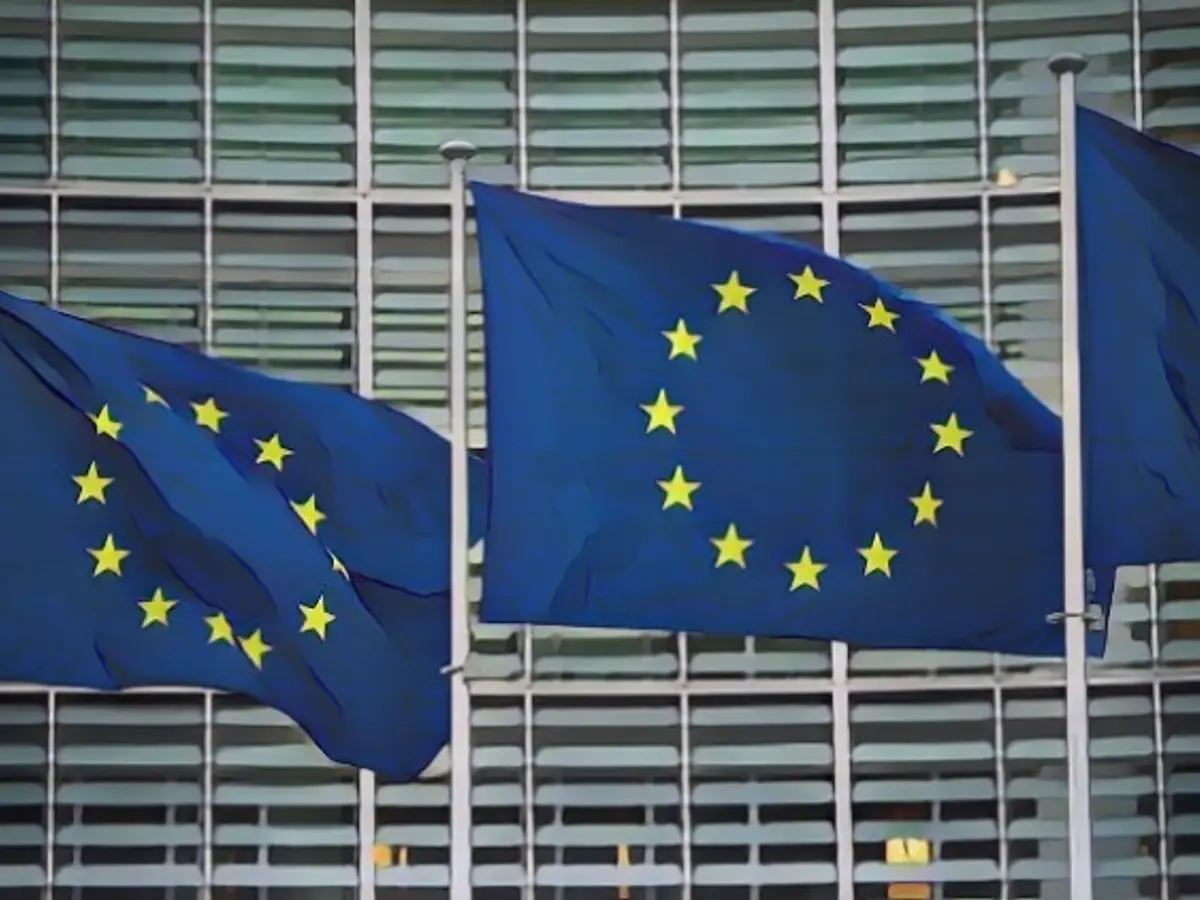European Optimism Slips Away: Waning Hope Across European Nations
As the European elections loom, German optimism about the European Union (EU) is tumbling. A European Parliament survey unveiled that half of Germans remain enthusiastic about the EU's future, a notable decrease from the 72% recorded just three years ago – a drop of 14%.
This trend isn't unique to Germany; optimism is fading across Europe. Despite hits of hope during the pandemic's tail-end at the end of 2020 with 66% optimistic Europeans, recent Eurobarometer polls show a mere 60% remain hopeful. France is at the bottom of the optimism list, with only 46% expressing hope and 49% slipping into pessimism.
The right's surge is becoming increasingly apparent, with some predicting significant gains for the "Identity and Democracy" (ID) group during the upcoming European elections in June. This group, including the AfD, could potentially become the fourth most influential political force in Germany after the Conservatives, Social Democrats, and Liberals, with elections scheduled for June 9.
The survey also underscored concerns over the EU's corruption, rising costs of living, and climate and asylum policies. Two-thirds of Germans believe the EU is failing to combat corruption, and many express dissatisfaction with measures to address the skyrocketing costs of living. Over half of Germans also express dismay with European climate and asylum policies.
Over 26,500 citizens from across Europe participated in the latest Eurobarometer survey, including 1,500 Germans.
Enriching Perspectives
The EU's perceived bureaucracy, along with the uneasiness regarding international border control, especially concerning migration, plays a role in fueling citizens' discontent. The housing crisis and lingering economic concerns, with Germany projected to become the bloc's weakest performer in 2025, further exacerbate Germans' pessimism. Additionally, the decline in the German population's confidence in their national government has also contributed to their dissatisfaction. Geopolitical instability, such as conflicts in Ukraine and the Middle East, has further chipped away at optimism about the EU.
Yet, German voters remain crucial for the upcoming European elections, despite their mounting discontent with EU policies.
Despite this gloomy outlook, several factors contribute to the dwindling optimism towards the European Union across European nations.
- Economic Uncertainty and Stagnation: Germany's economy has faced stagnation, with private consumption and investments failing to exhibit significant growth. This economic uncertainty, amplified by the proximity to the war in Ukraine and the ensuing energy crisis, has negatively impacted people's outlook.
- Rising Costs of Living: The cost of living is escalating across Europe, and Europeans grapple with high mortgage rates and weak housing demand.
- Health and Mental Health Concerns: The survey by Eurofound reveals that health and mental health issues rank among Europeans' major concerns. The overall decline in optimism is more pronounced among younger age groups, who grapple with notable malaise and a lack of faith in the future.
- Disability Status and Employment: Factors such as income, employment, education, and disability status help shape life satisfaction and optimism. The survey indicates that those in low-income households experience a more severe decrease in optimism, widening the wealth disparity between the wealthy and impoverished nations.
- Geopolitical Uncertainty: The emergence of the U.S. administration under President Donald Trump has introduced notable geopolitical challenges, including the marginalization of Ukraine and the EU in early negotiations with Russia. This has contributed to a sense of uncertainty and instability in European relations.
- Internal Political Crises: The EU is navigating internal political crises, such as those in France, which undermine its ability to project a unified front. This lack of cohesion and unity fuels the decline in optimism.
- Climate and Energy Policy Concerns: The stance of the next German government on climate and energy policies could influence optimism. The potential weakening of certain elements of the European Green Deal, such as the zero-emission rule for new cars, could be seen as a negative indicator with regards to climate ambition and overall EU policy.
These elements combine to account for the downturn in optimism towards the European Union across European countries.





